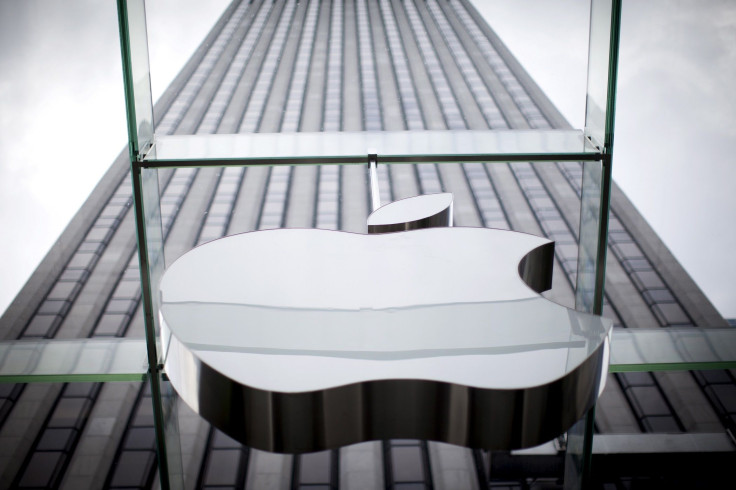Forcing tech companies to build nonexistent hacking technology might end both brand and consumer privacy

There are reasons why the likes of Google, Facebook and Microsoft, as well as other tech brands, have set aside their rivalries with Apple and support the goaded company instead. The most obvious is that every one of them has to follow suit once the FBI successfully have Apple submitted to its whim.
What the FBI really wants is to coax Apple to build a hacking technology or a special entry point that would make encryption of iOS phones easier. This all started when they failed to unlock an iPhone 5C recovered from one of the shooters in the San Bernardino Attack. However, Apple retaliated through a legal writing which stated its refusal to work with the Feds to make its system less secure, citing possible consumer privacy consequences.
“This is not a case about one isolated iPhone. Rather, this case is about the Department of Justice and the FBI seeking through the courts a dangerous power that Congress and the American people have withheld: the ability to force companies like Apple to undermine the basic security and privacy interests of hundreds of millions of individuals around the globe,” wrote Apple attorney Marc Zwillinger in today’s brief as reported by Wired.
Among the loopholes from the FBI order is its interpretation of All Writs Act of 1789, a several decades’ old law, saying that all federal courts have the power to issue writs to encourage third party entities to produce a court order and further solve a case. Aside from being outdated, Apple reiterates that yielding to the FBI’s request is like deliberately putting consumer privacy in peril.
There are currently over 1 billion iOS users across the globe, with its biggest market share coming from China and the European region.
Apple’s claim that the jeopardising consumer privacy has been proven highly possible when a journalist writing on the issue was reportedly hacked while connected to an airline Wi-Fi network and approached by the hacker himself after disembarking.
One of the possible ramifications of FBI’s insistence to persuade Apple to soften its security measures is an eventual drop in sales of all iOS gadgets. Who would buy a gadget vulnerable to being hacked anytime of the day?
The FBI, however, said that the request is only specific to the shooter’s phone, to which Apple CEO Tim Cook bluntly responded with contempt, saying it’s impossible to do a security technology for just one unit. "The FBI may use different words to describe this tool, but make no mistake: Building a version of iOS that bypasses security in this way would undeniably create a back-door," wrote Cook in a letter to customers published on the company’s official website .
But at the end of the day, it is the consumer who would directly suffer. Consequently, other brands, not only phone manufacturers but also software and app developers, have to do the same thing, which would then certainly result in consumers’ massive disappointment.
Journalist Max Rosenthal argued that a success on FBI’s end would just result to more security-related predicaments that tech brands would surely contest. “If the government can order Apple to write new code to open Farook's phone — Cook wrote that the software the government is asking for "does not exist today.”’ He also said it would surely lead to ordering messaging app developers to write new codes that would provide “easy” access to the government, which could be an open invitation to thieves and encroachers on the web.
“If there’s a universal privacy design for all phones, apps, and websites, then it would be easier for online bandits to go into a company’s system. Who is safe now?” commented Dom Einhorn, CEO of Born2Invest , a fast-rising multilingual app for business and finance news.
Elizabeth Joh, a law professor at the University of California, agreed . "The outcome of the case will affect everyone’s ability to keep their personal information safe on their smartphones and all their electronic devices. And it will test what limits exist on the government’s ability to force unwilling and innocent third parties to help it investigate crime," she said.
The worst thing that could happen, as Cook fears, is that it may prompt the Congress to take more severe actions especially after the administration’s denial of support for a bill forcing firms to build back-doors in their security systems designed for Federal access. “At stake is far more than just fines and public image at Apple. The fight could help determine just how independent a broad swath of the technology industry will be of government tentacles in the U.S., and ultimately abroad,” wrote Alex Webb and Selina Wang of Bloomberg.
The FBI insisted that Apple’s refusal to cooperate with the government shows its utter lack of sincerity over putting the San Bernardino case to rest.
“Apple’s current failure to comply with the Court’s Order, despite the technical feasibility of doing so, instead appears to be based on its concern for its business model and public brand marketing strategy,” Justice Department attorneys wrote, as reported by The Guardian.
For Edward Snowden , the former CIA employee who rose to prominence after copying classified data from the US-NSA without authorisation, the FBI is just using Apple to “legally” coax tech brands — or “make similar requests in the future” — to create accessible security backdoors to their advantage. He said it is highly impossible for a top security agency like the FBI to know nothing about hacking a single mobile phone.





















